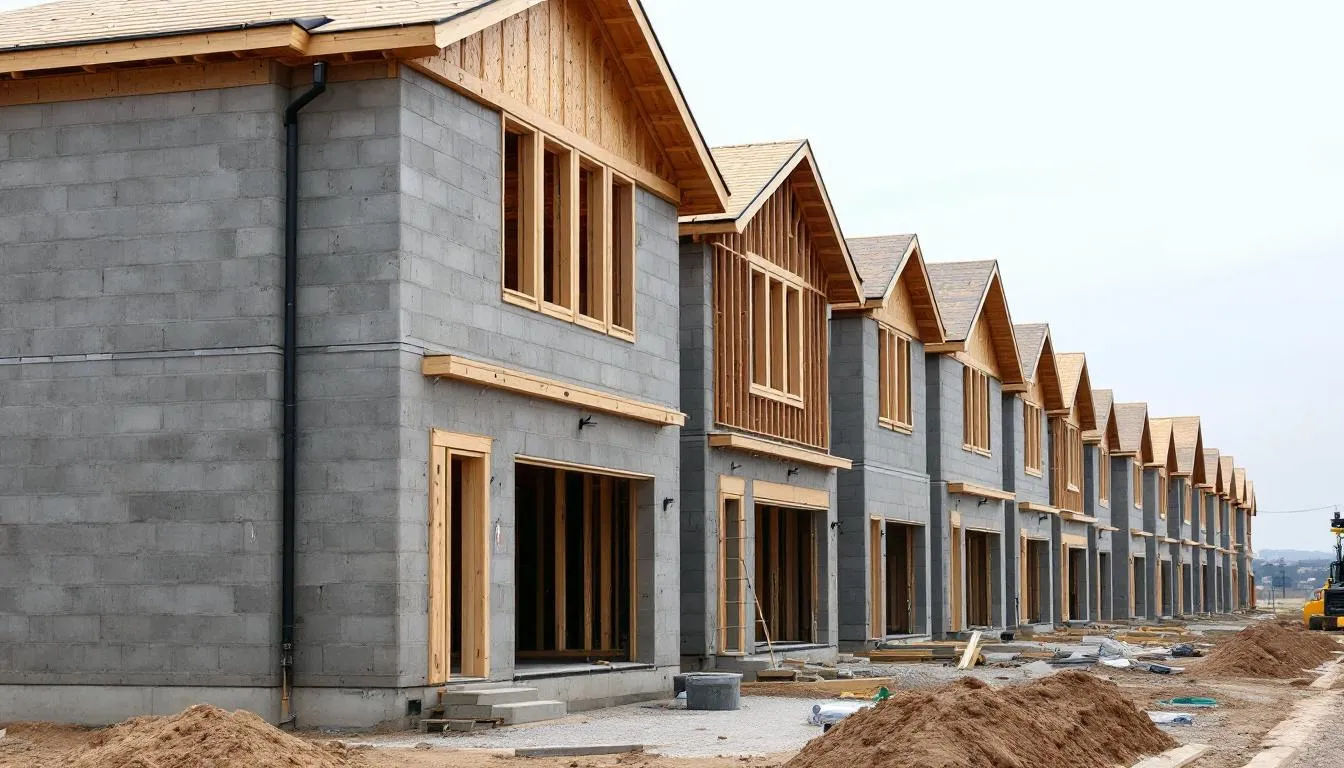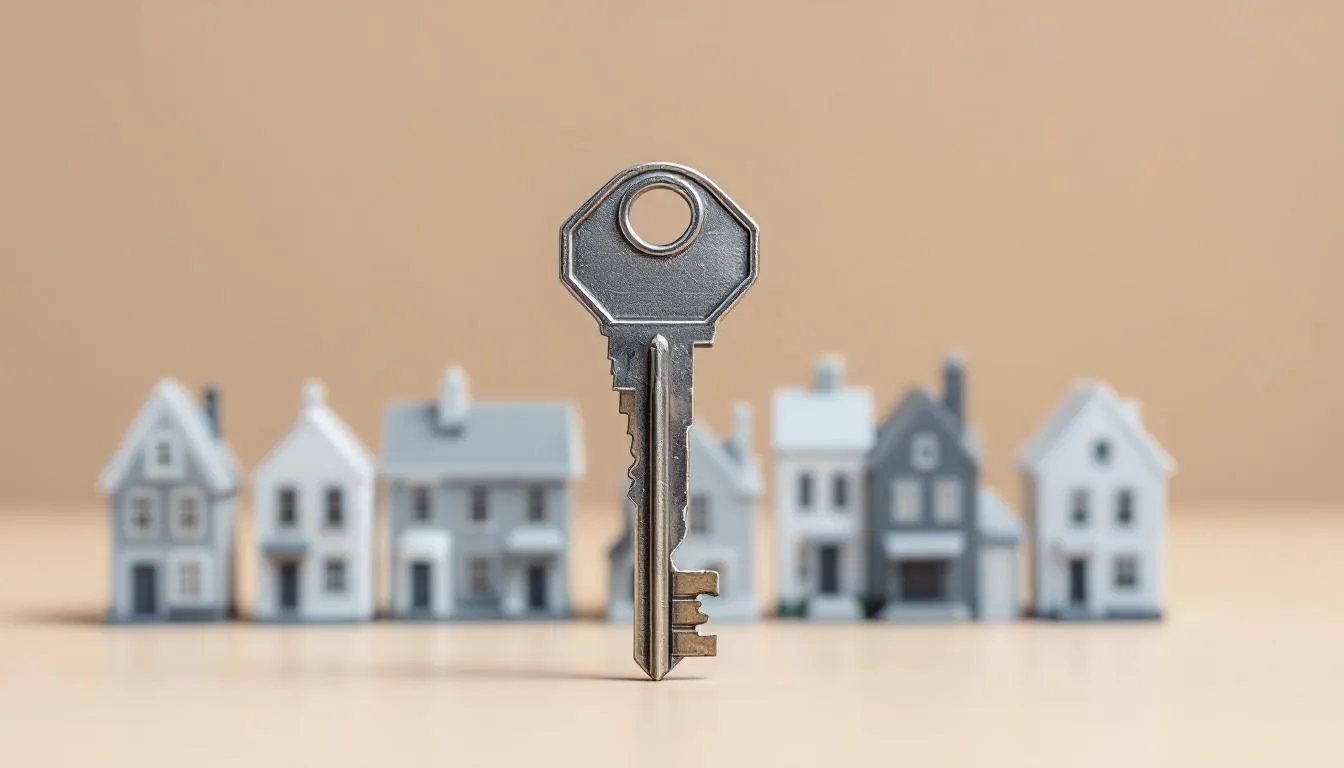- 📉 35% of millennials and 33% of baby boomers blame each other for the housing affordability crisis.
- 📊 Boomers aging in place are contributing to a nationwide shortage of larger, family-ready homes.
- 🏘️ Millennials face rising home prices, student debt, and low inventory, severely stalling first-time buying.
- 🏡 Investment property ownership by older generations squeezes supply for millennial homebuyers.
- 💰 64% of boomers cite maintenance costs as unaffordable, while millennials struggle with down payments.

Housing Crisis: Are Boomers or Millennials to Blame?
Rising home prices, limited inventory, and ongoing affordability problems have turned today’s housing market into a point of disagreement between generations. Baby boomers are often accused of holding onto homes and keeping resources to themselves. Millennials, on the other hand, are sometimes said to want too much, too soon, and too urban. But the real picture is not so simple. According to Las Vegas real estate expert Steve Hawks and recent national research, the tension between these generations shows bigger problems with the economy and rules. And what’s needed now is understanding and action, not blame.

Generational Ideas: Who’s Pointing Fingers?
The idea of which generation is responsible for the housing crisis is very different. And, not surprisingly, it follows generational lines. Survey data shows that:
- 35% of millennials believe baby boomers are to blame for housing costs being too high.
- 33% of boomers believe the opposite—that millennials are making the problem worse.
- Just 21% of millennials and 25% of boomers are willing to blame their own generation.
This victim-villain divide does not just show how housing works. It also points to bigger disagreements between generations over money, chances, and how people live. Boomers see millennials as lacking discipline. Millennials see boomers as holding onto resources. In reality, both points of view hide bigger problems going on. These include housing rules, wages not growing, and big changes in society around family structure and how people move.
Studies show that blaming one generation can hide problems that affect everyone. Instead of working toward making new rules or better financial tools, we get stuck in a never-ending anger that solves nothing. Understanding each side’s pressures and preferences is how we can start closing this gap.

Boomers’ Role in Today’s Housing Market
Born between 1946 and 1964, baby boomers came into a housing economy very different from today’s. When many of them entered the housing market in the 1970s and 1980s, they found low home prices, fairly affordable mortgages despite higher interest rates, and more homes being built in new neighborhoods.
Over the decades, owning a home became their strongest way to build wealth. They built home value, and this puts them in a much different financial spot than younger generations now trying to get into the market.
Aging in Place
One of the biggest effects baby boomers have on the housing crisis is through the growing trend of aging in place. Instead of moving to smaller condos or retirement communities, boomers are choosing to stay in large, single-family homes. According to a Freddie Mac study, about 1.6 million homes are being kept off the market each year as boomers stay where they are.
This seemingly personal choice has big economic effects. By staying in homes meant for families, they are unintentionally making fewer move-in ready properties available for younger buyers. And because many boomers do not have a mortgage, they have less financial reason to sell. This is especially true when they look at how much it costs to move to a smaller, but still expensive, place.
In markets like Las Vegas, known for quick growth after 2000 and new neighborhoods spreading out, this effect is easy to see. Family-sized homes built in the early 2000s that would be perfect for younger families getting bigger often remain with retirees. This means younger buyers cannot get into established neighborhoods.

Millennials’ Struggles with Market Entry
Millennials, born between 1981 and 1996, have come into a very different economy. Home prices have grown faster than wages for years. Add to that the heavy burden of student loans, not having steady jobs after the 2008 financial crisis, and putting off big life events like marriage or having children. So it is not surprising that millennials are behind previous generations in how many own homes.
In fact, studies show that by age 30, millennials are 8% less likely to own a home compared to Gen Xers at the same age, and 13% less than baby boomers.
Adjusting, Not Changing Things
Even though they are dealing with tough financial problems, millennials are often accused of changing old ways of housing. Critics point to their wanting to live in cities, using technology to buy homes, living together before marriage, and even buying homes with friends or siblings.
But these shifts are less about doing what they want and more about adjusting to things. Millennials are making careful choices in a real estate market that does not favor them.
According to the Clever Real Estate survey, 19% of millennials do think their generation is partly to blame for the housing crisis. But this is far less than the 30% of boomers who feel the same. Younger homebuyers know about the complicated parts. They are dealing with them while handling old problems they did not cause.

Housing Inventory: A Nationwide and Local Shortage
Looking past complaints from different generations shows a bigger main cause of the crisis: not enough homes available.
National View
New home building in the U.S. has not kept up with what people need for over a decade. According to Freddie Mac, the country is short over 3.8 million homes, especially in the starter home price range. Things like a lack of workers, rising material costs, and local rules about building have stopped building in many cities.
Strict zoning rules—like those allowing only single-family homes—and long approval processes slow down the flexibility needed to handle high demand. The end result? A block in available, affordable housing.
Las Vegas: A Smaller Example of National Problems
In Las Vegas, the problem has two parts. While there is land and lots of new building, the finished homes are often priced higher than what first-time buyers can afford. Developers aim for profits that come from mid- to high-end builds. This leaves an area with too few starter homes.
Meanwhile, big companies and individual investors—many from out of state—are quickly buying these few properties. They turn them into rentals or short-term vacation homes. This makes homes even harder to find. First-time buyers often lose out on bids, even for listings far from central areas.
According to Steve Hawks, Las Vegas real estate has never been more competitive at the cheaper prices. Buyers must act fast, often creatively, to get homes.

The Real Affordability Crisis: More Than Just Prices
Affordability goes beyond just how much something costs. It includes monthly payments, upkeep, taxes, insurance, and even how easy it is to change a home as owners get older.
For Boomers: Maintenance Costs
Many retirees living on fixed incomes now find themselves struggling with aging HVAC systems, leaky roofs, outdated plumbing, and big-property upkeep. According to Clever Real Estate, 64% of baby boomers say home upkeep costs are their biggest worry when it comes to affordability.
These issues get worse when you think about selling that home. It might not bring in enough money to easily move to a more suitable home. This is especially true when you add in moving costs, tax hits, and similar prices for smaller properties.
For Millennials: Debt and Down Payments
Millennials are more likely to struggle with the cash lenders need at the start. Many face the two-part problem of large student loans and a rental market that makes saving difficult. In the Clever Real Estate survey, down payments and debt ranked as the biggest problems among younger people who answered.
Higher interest rates make the problem worse. Rates were lower than ever before in 2020-2021. But the increase to 6%-7% mortgage rates in 2023 and beyond has greatly increased monthly payments. This pushes many people wanting to buy a home completely out of contention.

Down Payments: A Problem for Almost Everyone
Across generations and income levels, the down payment remains a problem for almost everyone who wants to own a home.
In Las Vegas, median home prices often need $60,000 or more for a 20% down payment. This does not include closing costs. With inflation and wages not growing affecting households everywhere, this amount is daunting.
Steve Hawks helps clients with several ways to get into the market sooner:
- Low down payment options like FHA and VA loans, which reduce the cash needed to save.
- Down payment assistance programs from Nevada-based nonprofits and local agencies.
- Gifting strategies from relatives, where allowed.
- Buy-and-renovate strategies to build value by doing work yourself through lower initial purchase prices.

Buying Properties for Investment and Its Effect on Available Homes
While some boomers are aging in place, many others—especially rich baby boomers and Gen Xers—are buying more real estate by investing in secondary homes or rentals.
Nationally, older generations control too big a share of the housing market. A Federal Reserve report found that baby boomers own roughly 44% of all real estate wealth in the nation. Some of this is made up of investment properties rented out privately or listed on Airbnb and similar platforms.
These properties are often perfect starter homes. But they are being taken off the market for good to make money. In Las Vegas, where tourism remains strong, the profit from turning single-family homes into short-term rentals is high. This makes it harder for new buyers to compete with investors who have lots of cash.
Steve Hawks watches these trends and looks at neighborhoods where homes are still fairly safe from being bought by many investors. This helps locals find good ways to own homes.

Generational Disagreement vs. Shared Realities
Despite the blame game, there is a lot of agreement in goals across generations.
- Both want steady homes with fair prices.
- Both think building home value is important over long-term renting.
- Both worry about the market's current up and down changes.
The real enemy is not millennials or boomers. It is a market that is too hot and held back by old rules, investors going too far, and not enough building for a long time. Better housing rules, smarter zoning, and development that helps everyone can close the gap.
Generational finger-pointing simply takes attention away from these things we can do.

Las Vegas Real Estate Snapshot: Who’s Buying, Who’s Selling?
Here’s what Steve Hawks observes today:
- Millennials are buying most of the homes in Henderson and Enterprise. This is where companies that use a lot of technology and new developments attract younger professionals.
- Boomers still are the main residents in Summerlin and Green Valley, either aging in place or shifting to smaller homes within age-restricted communities.
- More homes have many generations living in them are rising fast—parents and adult children partnering to buy larger homes and reduce costs.
This situation shows Las Vegas’s ability to change. But only for those who move quickly and plan wisely.

What Buyers and Sellers Should Know Right Now
For First-Time Buyers:
- Act now—waiting could go wrong as prices and rates go up and down.
- Focus on readiness, not market timing.
- Look into Nevada-specific grants or low-interest loan programs.
- Be flexible—don’t ignore homes that need minor updating.
For Boomers Ready to Move:
- Now is an equity peak—downsize while demand for family homes is still high.
- Consider single-story homes with accessibility features.
- Keep in mind: selling doesn’t have to mean leaving your neighborhood—Las Vegas has many suitable downsize communities.
For People Who Want to Invest:
- Avoid areas with too much of something, like downtown Airbnb zones.
- Look to communities near planned transit improvements or new commercial hubs.
- Talk with a local expert like Steve Hawks to find listings before they are on the MLS and underpriced opportunities.
Moving Forward: Closing the Housing Gap
Las Vegas—like much of the nation—must think differently about a housing plan focused on helping everyone, not leaving people out. That means:
- Changing zoning laws to allow for duplexes, ADUs, and mixed-use developments.
- Giving developers reasons to build affordable entry-level properties.
- Encouraging solutions for different generations, such as co-buying and shared equity models.
When millennials and boomers alike come together on common goals like financial stability, family support, and fair access, they can work together strongly enough to change local and state rules.
Stop the Blame Game and Start Building Equity
Today’s housing market is shaped less by individual buyers and more by historical trends, industry rules, and main economic systems. That means real change requires everyone understanding and working together—not pointing fingers.
For those in Southern Nevada, the chance for stability, growth, and homeownership still exists. With help from trusted advisors like Steve Hawks, families across the different generations can make smart, strong decisions and get their own part of the American Dream.
Whether you're investing, downsizing, or finally breaking into the market, it's time to move beyond the blame—and move forward.
Citations
Clever Real Estate. (2025). Homeownership by generation: Who’s to blame for the housing crisis?

